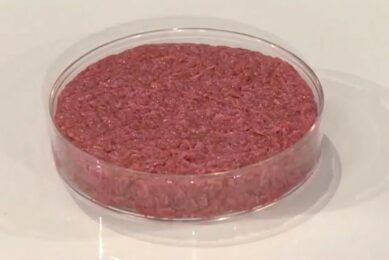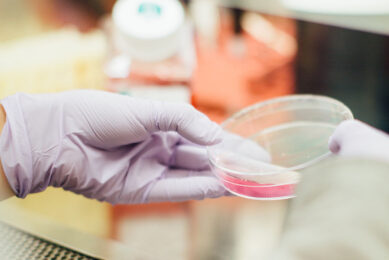Singapore ramps up cultivated chicken meat production

The construction of a 6,000-litre bioreactor in Singapore has commenced. From 2023, tens of thousands of kgs of cultivated chicken meat should be produced every year.
Good Meat, which forms part of the US company Eat Just, has initiated this bioreactor.
NRC reports that Mirte Gosker from the Asian department of the international think tank, Good Food Institute, says that scaling up the cultivated meat industry is a crucial step toward food security. “Singapore shows how to eat meat without industrial livestock farming and without cutting down the rainforest,” says Gosker.
A world first
In 2020, Singapore approved Eat Just’s cultivated chicken meat – a world first. NRC reports that in Singapore, agriculture is practised in only 1% of the country, and so the region is reliant on imports for 90% of its food. The country, therefore, announced in 2019 that it wants to be 30% self-sufficient in food by 2030.
A move away from a reliance on imports
In June, Malaysia suspended exports for several weeks. Because Malaysia supplies a third of the chicken consumed in Singapore, a huge disruption to supply resulted. Food stalls had to close temporarily, and prices increased sharply. Exports have now resumed, but the disruption highlighted the need for the country to reduce its dependency on imports.
Significantly lower climate footprint
Scientists agree that cultivated meat is sustainable, especially in comparison with regular slaughtered meat. If cultivated meat bioreactors get their energy from the sun or wind, the damage to the environment will be small, research bureau CE Delft concluded in 2021. The climate footprint will be 17%, 52% and 92% lower compared to intensive farming of chickens, pigs and cows.
Production costs will have fallen significantly by 2030. “70% of all agricultural land is used for the production of animal feed,” says Post. “If we massively switch to cultivated meat, only 10% of the land would be needed.”
The holy grail for a sustainable future?
Mark Post, professor of vascular physiology at Maastricht University and founder of cultivated meat company Mosa Meat, looks positively at the developments in Singapore. He says that cultivated meat is “a game-changer for the world food problem”, adding that if it is developed further, there will be enough to feed 10 billion people.












